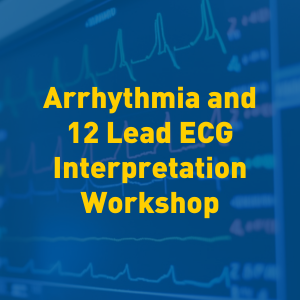|
Format |
Length |
University of Windsor Certificate |
The critical care units, which are also referred to as intensive care units, are high-stress, fast-paced environments capable of providing care to meet the needs of patients with various critical illnesses requiring advanced support and specialized services. Critical care nurses provide the specialized care for these patients and require advance theoretical knowledge, clinical judgement, problem-solving, and communication skills.
Introduction to Critical Care is an introductory course where nursing professionals will learn evidence informed nursing interventions, high-level clinical judgement and professional practice skills required to care for patients in the critical care area. The program provides an overview of cardiovascular, respiratory, neurology, endocrine, renal, gastrointestinal, hematology, immunology, and multi-system problems through independent self-study modules and interactive simulation activities. Through the course, the participants will increase their confidence to provide care to patients in the critical care areas while staying up to date on trends and technology in this practice area.
Modules
Self-paced modules can be taken individually to refresh your knowledge. However, completion of all 7 modules will make you eligible to attend Part 2, the in-person simulation.
This is the first module of the Introduction to Critical Care program, geared toward Nursing Professionals. It includes 5 hours of self-directed course content including instructional videos, a quiz and the opportunity to attend office hours with an instructor from the Faculty of Nursing to discuss your questions related to cardiovascular critical care module.
The focus of this module includes the normal anatomy and physiology of the cardiovascular system so that abnormalities and treatments may be identified.
- Differentiate normal cardiac anatomy, physiology, and pathophysiology to recognize signs and symptoms of atherosclerotic heart disease.
- Analyze comprehensive health assessment data to inform clinical practice.
- Interpret hemodynamic data obtained via hemodynamic monitoring to determine when pharmacological, surgical and/or mechanical therapy may be appropriate.
- Use a systematic approach of ECG interpretation to identify specific arrhythmias and the significance and treatment of each arrhythmia.
- Provide responsible, accountable, and ethical care in compliance with professional standards.
- Respond to cardiovascular emergencies using basic and advanced cardiac life support.
This is the second module of the Introduction to Critical Care program, geared toward Nursing Professionals. It includes 5 hours of self-directed course content including instructional videos, a quiz and the opportunity to attend office hours with an instructor from the Faculty of Nursing to discuss your questions related to the Respiratory Critical Care module.
The focus of the module includes the normal anatomy and physiology of the respiratory system to assess, plan, implement and evaluate nursing care in critical care setting for patients with respiratory difficulty, using enhanced knowledge of pathopsychological processes.
- Analyze ABG’s and manage oxygen delivery including oxygenation and ventilation
- Care for patients with acute respiratory failure ad acute respiratory distress syndrome (ARDS)
- Administer care for patients requiring endotracheal intubation or invasive mechanical ventilation, and troubleshooting ventilators
- Manage patients on mechanical ventilation, including spontaneous awakening trials, neuromuscular blockade, prevention of complications, weaning from ventilation and extubation.
This is the third module of the Introduction to Critical Care program, geared toward Nursing Professionals. It includes 5 hours of self-directed course content including instructional videos, a quiz and the opportunity to attend office hours with an instructor from the Faculty of Nursing to discuss your questions related to the Neurologic Critical Care module.
The focus of this module is to provide an overview of nervous system anatomy and physiology, neurological assessment and diagnostics, and the medical and nursing management of a variety of neurological disorders in critical care. The care of clients undergoing neurosurgery will be explored along with pharmacological interventions.
- Develop a plan of care to perform an appropriately focused and reliable neurological examination in both the ambulatory and hospital settings including mental status, cranial nerves, motor function, sensation, reflexes, coordination, and gait.
- Examine how to recognize and interpret abnormal findings on the neurological exam; be able to distinguish between upper and lower motor neuron findings, lesions of the hemispheres, posterior fossa, spinal cord, nerve root/plexus, peripheral nerve, neuromuscular junction, and muscle.
- Identify how to approach and examine the patient with altered level of consciousness.
- Identify what constitutes brain death and how the determination is made.
This is the fourth module of the Introduction to Critical Care program, geared toward Nursing Professionals. It includes 5 hours of self-directed course content including instructional videos, a quiz and the opportunity to attend office hours with an instructor from the Faculty of Nursing to discuss your questions related to the Gastrointestinal Critical Care module.
This focus of this module includes an overview of GI diagnostic testing and nutritional therapies, including enteral and parenteral nutrition. The learner will explore the diagnosis, management and potential complications of GI bleeding, pancreatitis and liver failure. Other pathologies include Bowel ischemia and infarction, obstructions, abdominal trauma, and nutritional support.
- Review the anatomy of the gastrointestinal system.
- Identify selected diseases and disorders of the gastrointestinal tract.
- Examine the pathophysiology of diseases and disorders of the gastrointestinal tract.
- Interpret signs and symptoms of gastrointestinal disease processes.
- Develop appropriate nursing interventions and treatments for selected gastrointestinal diseases.
This is the fifth module of the Introduction to Critical Care program, geared toward Nursing Professionals. It includes 5 hours of self-directed course content including instructional videos, a quiz and the opportunity to attend office hours with an instructor from the Faculty of Nursing to discuss your questions related to the Essentials of Caring for Renal Disorders module.
The focus of this module includes a deliver kidney care to affected patients across all stages of the kidney care journey, from early detection through dialysis, palliative care and transplant. The module provides nurses with the knowledge they require to promote and deliver competent, safe and ethical care to those at risk for developing or affected by real disease and/or insufficiency.
- Differentiate between normal and abnormal anatomy and function of the kidney and renal system and related pathophysiology to determine physiological needs and care priorities.
- Discuss the diagnosis, etiology, therapeutic management and care of individuals living with and families affected by kidney disease in relation to acute renal failure, peritoneal dialysis, hemodialysis, end-stage renal disease, transplantation and palliative/end-of-life care to prioritize patient-centred priorities across the trajectory of chronic kidney disease.
- Discuss considerations and implications related to nursing care for specific populations at-risk for developing or affected by kidney disease (i.e. older adults, children, individuals living with diabetes and/or hypertension, etc.) to appropriately tailor an individualized plan of care.
- Examine current and emerging trends in relation to the diagnosis and care of individuals at risk for or living with kidney disease, including movement towards person-centred care in community-based settings and the functional integration of services in order to best achieve desired outcomes at the patent and system levels.
This is the sixth module of the Introduction to Critical Care program, geared toward Nursing Professionals. It includes 5 hours of self-directed course content including instructional videos, a quiz and the opportunity to attend office hours with an instructor from the Faculty of Nursing to discuss your questions related to the Endocrine and Hematological Critical Care Essentials module.
Part I: Endocrine Disorders
Part 1 of this module delivers a review of the endocrine system with an emphasis on the assessment, treatment, management, and care of the patient with Diabetes Mellitus and other endocrine disorders.
- Describe and differentiate nursing priorities for managing a patient with critical illness induced hyperglycemia, diabetes, and the diabetic emergencies of: diabetic ketoacidosis (DKA), hyperglycemic, hyperosmolar syndrome (HHS), and hypoglycemia.
- Compare and contrast the interpretation of diagnostic assessment data, management, and nursing priorities for patients with the pituitary disorders of diabetes insipidus and syndrome of inappropriate antidiuretic hormone, and the disorder cerebral salt wasting.
- Compare and contrast the interpretation of diagnostic assessment data, management, and nursing priorities for patients with disorders of the thyroid, parathyroid, and adrenal glands.
Part 2: Hematological Disorders
Part 2 of this module delivers a review of the structures and function of the hematologic system and the care and treatment of patients with diseases that arise from various blood disorders.
- Discuss the management of hematological disorders including sickle cell crisis, transfusion reactions.
- Foster the development of nursing of care patients with blood cancers, bleeding and cot formation.
- Discuss nursing care implications in caring or a patient with various blood disorders.
This is the seventh module of the Introduction to Critical Care program, geared toward Nursing Professionals. It includes 5 hours of self-directed course content including instructional videos, a quiz and the opportunity to attend office hours with an instructor from the Faculty of Nursing to discuss your questions related to the Multisystem Critical Care Essentials module.
This module delivers a review of an in-depth review of the different types of shock (hypovolemic, cardiogenic, neurogenic and anaphylactic), the SIRS, sepsis - multisystem organ dysfunction syndrome (MODS) continuum, including sepsis screening, international sepsis and septic shock treatment bundles, rhabdomyolysis, necrotizing fasciitis and behavioral issues in critical care, including alcohol withdrawal and substance abuse. Within each topic, you will explore assessments, evidence-based interventions and strategies to prevent complications.
- Demonstrate knowledge of the various stages and types of shock.
- Describe the care of a patient progressing along the sepsis continuum.
- Demonstrate knowledge of how to screen and manage a patient at risk for alcohol withdrawal syndrome.
- Demonstrate knowledge of how to screen and manage patients admitted for drug overdoses.
- Demonstrate knowledge of the signs and symptoms of necrotizing fasciitis and rhabdomyolysis.
- Describe the care of a patient with necrotizing fasciitis and rhabdomyolysis.
Critical Care Simulation
Once all modules are completed, learners will have the option to attend the in-person Critical Care Simulation. This is the final requirement of the Introduction to Critical Care program, geared toward Nursing Professionals.
The Critical Care Simulation will be completed in-person in the Faculty of Nursing, University of Windsor simulation lab with high fidelity manikins. In small groups, learners will be presented with case-based scenarios that will align with the theory in the 7 self-directed modules. Participants will develop skills in caring for the critically ill patient. Scenarios will focus on mechanical ventilation, cardiac rhythm interpretation and treatment, as well as hemodynamics. Team dynamics, pharmacology, and ethical issues will be threaded throughout each scenario.
Instructor Feedback
The goal of critical care is to stabilize the patient, support recovery, and prevent complications, often in situations where the patient’s life is at immediate risk. Those who participate in the University of Windsor’s critical care program will take away an increased sense of confidence in their ability to accomplish these care goals, in addition to improved decision-making, and enhanced teamwork abilities.
- Destiny Cadarette
Hear From Our Students
The simulation really helped me visualize and see in the moment what happens during a code. It was a great experience, Destiny was amazing.
Destiny, Felicia and Debbie are all very knowledgeable. I greatly enjoyed my experience completing the modules, quizzes and especially partaking in the simulation aspect. I am thankful I took this course and I look forward to using my new found knowledge and confidence in my future practice.
This course was very informative and the scenarios were comprehensive, fantastic job!
The Critical Care Simulation is designed for nursing professionals or senior students (Nursing or Medical) who already have a basic understanding of critical care and wish to learn more about providing care to patients in the critical care areas.
At the completion of the program, the participant will be able to:
- Assess, analyze and monitor data for patients with complex, multi-system problems in order to anticipate early deterioration in patient’s condition, establish priorities and to plan interventions.
- Plan and implement specialized nursing interventions to achieve optimal patient outcomes in potential or actual critical illness and end-of-life situations.
- Evaluate the nursing interventions and adapt plan of care based on the response of the critically ill patient.
Upcoming Course Schedule
Please join our interest list for more information about new programs & upcoming sections of this learning.
Format
Online + In-Person
There are two parts to this program:
- 7 self-paced modules (Online with Office Hours available)
- In-person Critical Care Simulation (Students must first complete the 7 self-paced modules before attending the in-person simulation)
Credential
Learners will receive a Certificate of Participation in the Introduction to Critical Care Program by completing all 7 online, self-directed modules and the in-person simulation.
Prerequisites
The Critical Care Simulation is designed for nursing professionals or senior students (Nursing or Medical) who already have a basic understanding of critical care and wish to learn more about providing care to patients in the critical care areas.
For all modules and simulations, It is expected that learners will have:
- Successfully completed all 7 self-directed modules in the Introduction to Critical Care Program before attending the Critical Care Simulation
- Basic computer skills or course completion in fundamental computer applications such as Word
-
Experience working with word processing, email, and web browsing
-
English language proficiency
Individuals who do not complete the 7 critical care modules will not be permitted to attend the Critical Care Simulation and will be automatically withdrawn from the Critical Care Simulation course.
Technical Requirements
This class is offered through Brightspace. Learners will require access to a computer with high-speed internet access.
All course details can be accessed through Brightspace. A link will be provided through email and you will have access the first day of class.
Please activate your UWinID. Your UWinID and password are needed to access Brightspace. If you have any issues, please contact continue@uwindsor.ca.
More information on Brightspace can be found on our FAQ page.
Course Fees
Price Per Module: $79 + HST
Critical Care Simulation Fee: $946 + HST
Bundle price: $1349 + HST.
-
Purchasing this program at the bundle price will enroll you in all 7 modules and the Critical Care Simulation.
-
Save $150 by purchasing the bundle
Full refund 7 days before the start of the course, minus a $25.00 administration fee. Please review our Registration and Refund Policies for more information.
Discounts
UWindsor Staff, Students, Alumni, and Hire UWindsor Partners are eligible for a discount. Email continue@uwindsor.ca for details.
Funding
OSAP-MC
-
This program is eligible for the OSAP Micro-credential application (OSAPMC).
-
Participants must be registered into the program prior to applying for OSAPMC.
- Participants are obligated to pay their fees in full, at least 10 days before the class start date
- If you wish to withdraw from the program, you must email your drop request to our team at continue@uwindsor.ca at least one week before the course start date to receive a full refund (less the $25.00 administrative fee)
- Register for this program accordingly to allow ample time for your application to be processed. It takes approximately 10-15 business days for the OSAPMC application to be processed.
Coming Soon
Instructors
Destiny Cadarette, MN, BScN, RN, is a critical care trained, registered nurse. She has been working for the last seven years in an emergency department as a bedside nurse and preceptor. She has her Master of Nursing degree and is part of the sessional faculty at the University of Windsor. Over the last three years, she has taught with the University of Windsor and St Clair College in the BScN program. Destiny teaches clinical placement in many different settings, as well as experiential learning lab, and is a faculty member in the simulation lab. Destiny has participated in many research opportunities and has been a presenter at nursing conferences. She is a current member of RNAO and a past president of Sigma Tau Upsilon Chapter. Destiny’s main nursing interests include cardiac and critical care. Destiny is looking forward to sharing her passion for nursing and knowledge with others!
Felicia Varacalli, PHC-NP, MScN, BScN is a nurse practitioner who currently works in primary care. However, she recently worked three years in the intensive care unit as a critical care-trained registered nurse. She just obtained her Primary Health Care Nurse Practitioner degree in August of 2024, and completed a thesis during her Master of Nursing degree in 2023. Her research focused on nursing perspectives of family-centred rounds in adult intensive care units. She also works as a faculty member in the simulation lab at the University of Windsor. She is a current member of RNAO and Sigma Tau Upsilon. She looks forward to sharing her critical care knowledge and passion for teaching with you.
Delivered in collaboration with the Faculty of Nursing
Other Learning Opportunities
Email us at continue@uwindsor.ca if you have questions - we are always happy to help.
Sign up on our Interest List to be notified about enrolment and receive updates from Continuing Education.








